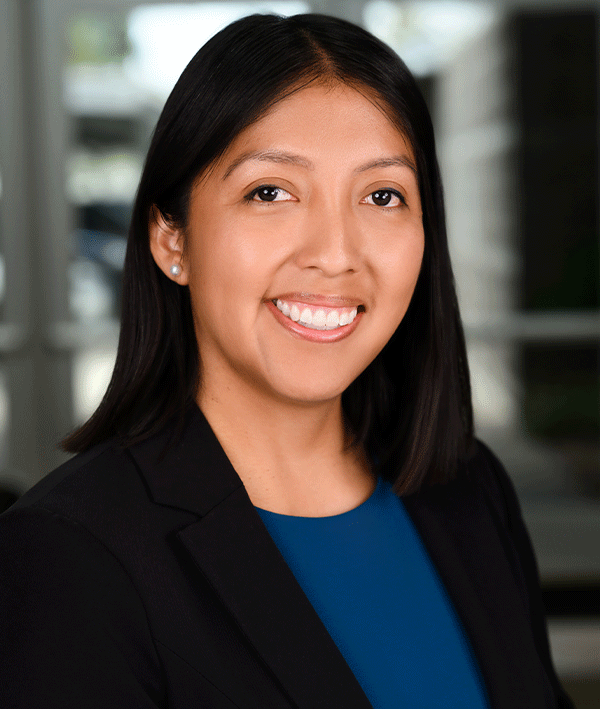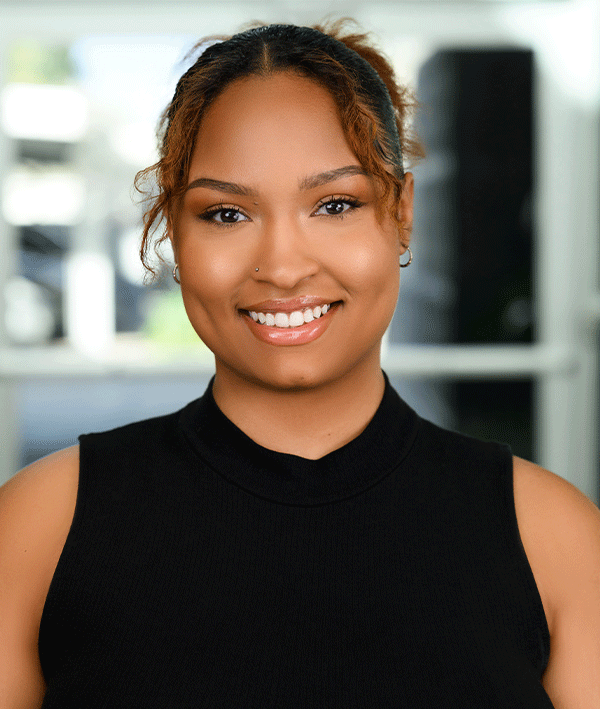Flinn Scholarship Applicants

How to build a great application
The Flinn Scholarship application features many components that all play a role in the selection process.
When the final decisions are made, we only select students we believe we really know. Be yourself.
Objective criteria such as grade-point average, test scores, and class rank play a part in the Flinn Scholarship selection process, but they are not the sole basis for our decisions.
We evaluate a student’s academic achievement, leadership and involvement, service to the community, ability to communicate, and personal characteristics. Each factor contributes to the holistic picture that you present to us.
The sections below will introduce you to the Flinn Scholarship application. Each section briefly describes what is required and offers some insight into how our reviewers will consider your responses. This is not a roadmap for a successful application, but rather a means to assist you in thinking about how best to present yourself to us.
Application at a glance
- Forms that collect biographical and family data; information about current studies, extracurricular activities, honors and awards, and employment;
- Three essay prompts;
- Two recommendations;
- A report from your high school’s academic counselor; and
- A copy of your transcript, uploaded by your counselor in conjunction with your counselor report.
- Need to know more after you read what’s below? Browse a selection of FAQs for students.
Application tips
- Biographical Data and Family Information
Your progress in the selection process will not be determined by any information included in this section. The information collected in this section is used to establish some context to understand you as a person before we learn more about you as a student.
- Career and Academic Interests
We do not have a pre-determined expectation of your academic or career path. We require that you apply to at least one Arizona university and their honors college, but we do not have a preference among them, as ASU, NAU, and U of A all have world-class programs well matched to students with specific interests. You are treated the same whether or not you have applied to universities outside Arizona. If you have applied to a university outside Arizona under an Early-Decision program, you may apply for the Flinn Scholarship, but we ask that you update us on your early-decision status in December.
- Academic Profile
We look for students who challenge themselves, so we recommend taking advantage of honors, Advanced Placement, International Baccalaureate, and/or Cambridge courses your school offers. We also value students taking a full schedule their senior year, which tells us that they do not wish to miss an opportunity to learn. If you are in high school part-time because you are taking community-college courses, please indicate that in your list of current-year high-school and college courses.
- Activities and Involvement
In part, the Flinn Scholarship exists to encourage student leaders to remain in Arizona and contribute to their university and civic communities. The best way to predict the quality of a student’s future involvement is to examine the quality of their activities during high school. We seek students who pursue their interests, develop their talents, value service, and set an example for their peers through school and community activities. In addition to listing roles you might have held in a particular organization, explain what you achieved, what kind of impact this organization has had on you, as well as your impact on the organization. If you have worked while going to school, tell us about your employment and why you pursued a job. When noting personal hobbies, offer specific examples. “Reading” and “hiking” do not tell a reviewer very much; but “reading Murakami and Pamuk novels” and “hiking the North Kaibab trail” begin to fill in the gaps in our understanding of you.
- Distinctions and Honors
Be sure to spell out or (briefly) explain any unusual terminology or acronyms associated with awards. It may be helpful to also indicate the size or competitiveness of the applicant/nominee pool from which you were chosen. If relevant, you may invite a recommender to discuss a particular honor as a part of their recommendation.
- Essays
The essay responses you write are an important part of your application. They provide a crucial opportunity to differentiate yourself in a meaningful way from other applicants. An essay’s distinctiveness is a product of your thoughtfulness, an authentic narrative, and a creative and persuasive voice. To prompt an invitation for an interview, your written application must compel a reviewer to say, “I have to meet this student in person.” Personalize your essays with your beliefs, experiences, and discoveries. We seek Scholars who care and think deeply about issues and can express and explain their views with conviction, even to audiences that may disagree with them.
This must be your work—not a teacher’s work, not your parent’s work , and not ChatGPT’s work. Do not let someone—who most assuredly cares about you—rewrite your first draft, borrow your keyboard for a minute to give your essay a new focus, or add the perfect ending. Essays that are written by committee are easier to spot than you might guess.
- Disclosures
In this section you may identify any other issues we should know about. You must also agree to the legal terms of submitting your information to the Flinn Scholars Program, and you and your parent or guardian must both (electronically) sign.
- Recommendations
The counselor report includes an online form and an upload of the applicant’s high-school transcript. There is no recommendation as part of the counselor report.
We also require two recommendations, one of which must come from a high-school teacher and the other from a teacher, counselor, coach, employer, or community member.
When you register your recommenders in the final section of the application, an email message is sent to each of them with instructions for accessing and completing the recommendation. To ensure that they receive those instructions, please tell them in advance to expect the email and follow up to make sure they receive it. It is courteous to do so and it prevents last-minute scrambling to complete a recommendation. This is particularly important since some schools and districts have aggressive email spam protection and firewalls. The earlier you request a recommendation, the better. Many recommenders will want to discuss your application with you before they write. Students who request recommendations early also avoid the rush of requests for recommendations that inevitably take place later in the year. You might suggest that they consult this page for suggestions on how to be effective advocates for you. The counselor report and recommendations for the Class of 2025 application were due Nov. 4.
Give your recommenders plenty of information. Tell them who else is writing your recommendations, in case they’d like to compare notes. Provide information about your activities and awards. And do not be afraid to invite them to write about something in particular. Recommendations, like essays, are most effective when they are specific and personal. If one of your papers or lab projects particularly impressed a teacher, remind your teacher of the specifics. If you still have an assignment bearing the teacher’s enthusiastic notes, refresh their memory with a copy. If in a particularly difficult time in your life a counselor or teacher helped you, tell them whether you would feel comfortable if they wrote about it. Help your recommenders show us what you’re like in the classrooms and hallways of your school.
The application season is an incredibly demanding time for your teachers and counselors; they deserve advance notice if you would like them to write recommendations. We encourage students to make polite inquiries as the deadline approaches to confirm the recommenders have been able to submit their recommendations.
- Academic/Teacher Recommendation
Your academic recommendation should come from a high-school teacher who has given you a letter grade and possesses a strong understanding of your academic performance and your involvement at the school. If they have also advised your work in an activity, they are welcome to include that information with their assessment, but we want their focus to be on your intellectual acuity and agility. There is no preference on the subject matter, as the focus of the recommendation is to get to know who you are as a student and learner.
The academic/teacher recommendation will include responses to these three prompts:
1) Provide an example of this student’s intellectual curiosity, growth, and maturity. (200 words max)
2) Provide an example of this student’s integrity and interpersonal skills. (200 words max)
3) Every student adds to the classroom learning environment in some way. Knowing that all Flinn Scholarship applicants are excellent students who are at, or near, the top of their class, how does this candidate enhance your classroom learning environment? What is different in your classroom when this candidate is, or isn’t, there? (200 words max)
- Leadership/Service Recommendation
The individual you choose for this recommendation should be able to speak to your leadership and commitment to service during your high school years. This recommendation may be written by a teacher, counselor, coach, employer, or community member, but not by a relative or family member. As with the academic recommendation, take the time to sit down with your recommender to discuss your application. Bring a copy of your work for them to review and talk about additional information they could share in the recommendation. This teamwork will result in a more cohesive and effective application package.
The leadership/service recommendation will include responses to these three prompts:
1) Provide an example of this student’s ability to influence, empower, and inspire others. (200 words max)
2) Provide an example of this student’s commitment to service and concern for others. (200 words max)
3) Provide an example of this student’s earned respect of peers, community members, and/or leaders. (200 words max)
- Questions



